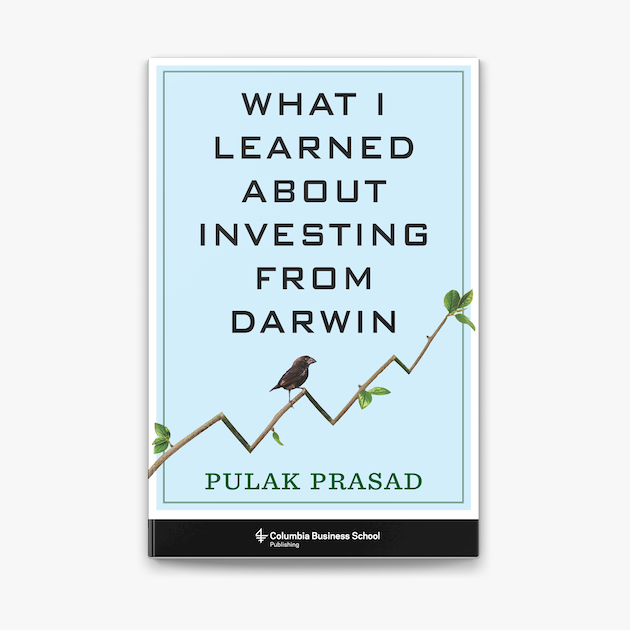I’m an individual investor since 2007 and have read many books about investing. I have changed how I practice investing thanks to Pulak Prasad’s book, What I Learned About Investing from Darwin. Pulak is the founder of Nalanda Capital.
Here’s the summary of my learnings from Pulak’s book.
Nalanda’s approach to investing comprises three steps:
- Avoid big risks
- Buy high quality at a fair price
- Don’t be lazy – be very lazy
Nalanda is highly selective to avoid making bad investments (Type I error), thereby missing out on some good investments (Type II error).
First, they apply the risk filter to eliminate serious risks. Six types of businesses they avoid at all costs:
- Those owned and run by crooks
- Turnaround situations
- Those with high levels of debt
- M&A junkies
- Those in fast-changing industries
- Those with unaligned owners
Second, they shortlist businesses based on historical high-ROCE (20 percent or more, past five to ten years or more). Selecting high ROCE for the initial list excludes some potential winners, but it also excludes hundreds of low-quality businesses.
High ROCE generally indicates that the management team is stellar, they allocate capital effectively, they have built a strong competitive advantage over their peers, and they have room to innovate and grow.
Then, they apply additional filters to create a final list of companies to track for investments.
As permanent owners, they seek robustness in companies as the best available benchmark to assess if they are likely to adapt and survive over the long term. A robust business has high ROCE, minimal debt, a strong competitive advantage, fragmented customer/supplier bases, stable management, and in a slow-changing industry.
They demand stellar absolute and relative financial performance.
They understand the sources of high returns and their sustainability.
According to Pulak, the only way to protect against loss of robustness is entry valuation. The secret of sound investment into three words – MARGIN OF SAFETY.
The market is almost always efficient. Almost always. Not always. They wait for those few occasions to pay a “fair” price. Not too low, but not too high either.
Third, they have capitalised on the inevitable short-term fluctuations in high-quality businesses to invest at attractive valuations. However, since these opportunities arise infrequently, they rarely ever buy. They are lazy in buying.
After investing, they ignore near-term fluctuations because the fundamental characteristics of stellar businesses remain stable over the long term. They never sell on valuation – They are very lazy in selling.
If you are an individual investor like me and interested in long term investing, I highly recommend What I learned about investing from Darwin.
📕 Book


Leave a comment